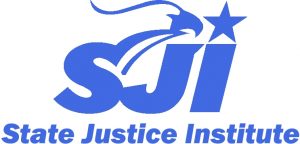 The National Council of Juvenile and Family Court Judges (NCJFCJ) with support from the State Justice Institute (SJI) hosted a series of five webinars titled Opioids and the Courts- Difficult Conversations. The NCJFCJ and expert faculty explored challenges associated with referring children and families to services in dependency and delinquency cases. The faculty and webinar attendees had the opportunity to discuss how courts and services providers can work together to meet the needs of families and improve their lives. Recordings of this webinar series and links to related resources can be found in the Opioids and the Courts Toolkit.
The National Council of Juvenile and Family Court Judges (NCJFCJ) with support from the State Justice Institute (SJI) hosted a series of five webinars titled Opioids and the Courts- Difficult Conversations. The NCJFCJ and expert faculty explored challenges associated with referring children and families to services in dependency and delinquency cases. The faculty and webinar attendees had the opportunity to discuss how courts and services providers can work together to meet the needs of families and improve their lives. Recordings of this webinar series and links to related resources can be found in the Opioids and the Courts Toolkit.
Opioids and the Courts Toolkit
Targeted Resource Mapping & Toolkit
 In addition to the webinar series, the NCJFCJ provided training and technical assistance to juvenile and family courts across the country to address the effects of opioid use disorders (OUDs) and other substance use disorders (SUDs) on children and families.
In addition to the webinar series, the NCJFCJ provided training and technical assistance to juvenile and family courts across the country to address the effects of opioid use disorders (OUDs) and other substance use disorders (SUDs) on children and families.
The project involved recruiting judicially-led court sites to engage in Targeted Resource Mapping to document the continuum of services available for children and families affected by OUDs and other SUDs. The project had two primary, interrelated goals for the sites to 1) gain knowledge of existing services on a local level; and 2) identify and address service gaps in an effort to ensure a healthy and effective continuum of services.
As a result of that work, the NCJFCJ developed the Targeted Resource Mapping Toolkit (Mapping Toolkit). The Mapping Toolkit includes templates to develop a Targeted Resource Map (resource map), Targeted Resource Directory (resource directory), and Targeted Resource Mapping Action Plan (action plan). The Mapping Toolkit is intended to encourage and provide guidance to courts that are seeking to better understand existing resources, identify and address service gaps, and build relationships with providers in their community.
Learn more about the Targeted Resource Mapping Toolkit